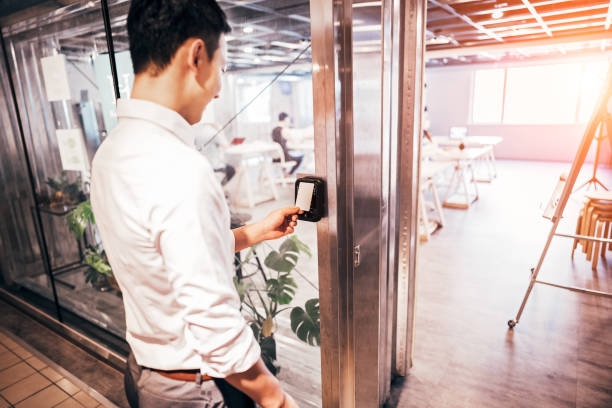Corporate security is more important than ever in a landscape always changing. Businesses run a wide spectrum of risks from cyberattacks to physical security lapses as we enter 2024. Organisations trying to safeguard their assets, staff, and reputation must first understand the newest trends in corporate security. The top five corporate security trends any company should be aware of in 2024 are discussed in this paper.
1. Heightened Focus on Cybersecurity
The Changing Cyberscape
Cyber risks have grown to be a major issue for companies in many sectors as digital transformation takes hold. As businesses deal with sophisticated attacks from hackers looking for financial gain and sensitive data in 2024, cybersecurity will likely take the stage. Companies have to make strong cybersecurity investments if they are to reduce these hazards.
Approaches of Multi-Layered Safety
Companies are using tiered security systems to fight cyberattacks. This covers protecting private information by using modern encryption techniques, intrusion detection systems, and firewalls. Furthermore, increasingly crucial in building a culture of security awareness inside companies are frequent security audits and staff training courses.
2. Artificial Intelligence (AI) integration
Improving Security Functions
By automating repetitive operations and enhancing threat detection capacity, artificial intelligence (AI) is revolutionising corporate security. Businesses will rely more and more on AI tools in 2024 to instantly analyse enormous volumes of data, therefore enabling security teams to see any risks before they become more serious. AI-powered surveillance systems improve general security standards by tracking behaviour and pointing up irregularities.
Predictive Analytics for Risk Management
Another area where artificial intelligence is generating waves in corporate security is predictive analytics. Analysing past data and seeing trends helps companies to predict possible security risks and distribute their resources properly. By means of this proactive approach, companies can apply preventive actions instead of only responding to events.
3. Growing Need for Close Protection Services
Conserving Notable People
The demand for Close Protection services is predicted to surge in 2024 as dangers to people become more severe. High-profile people—executives, celebrities, public figures—need specific security protocols to guarantee their safety during public appearances, corporate events, or personal meetings. Trained to provide unobtrusive, tailored security, close protection officers help to properly control possible hazards.
Customised Security Solutions
Companies realising they need Close Protection services are looking for customised solutions that take particular risks faced by well-known people in mind. This could call for thorough security evaluations, careful route planning for travel, and application of protective actions during public events. Personalised security solutions are becoming more and more important for companies trying to protect their assets and reputation.

4. Stressing Physical Security Strategies
Developing On-Site Safety
The need for physical security measures is never more clear as businesses negotiate hybrid working methods. Businesses will concentrate on improving on-site security systems in 2024 to guard staff members and property. This includes funding access control systems, security cameras, and emergency response strategies.
Integrating Technology with Physical Security
Including technology into physical security protocols is becoming really important. Artificial intelligence enabled smart security systems can track access points, identify illegal access, and instantly notify security staff. Furthermore becoming more and more popular for protecting private regions inside companies are biometric authentication techniques such face recognition or fingerprint verification.
5. Control of Risk and Regulatory Compliance
Adjusting to Changing Laws
Regulations controlling business security measures change with the times as security concerns do. Businesses ought to keep updated on legislative changes in 2024 and guarantee industry standards are followed. Ignoring these rules could have major legal repercussions and harm to a company’s reputation.
Creating All-Inclusive Risk Control Strategies
Navigating regulatory compliance and handling possible security concerns calls for a thorough risk management strategy. Regular risk analyses help companies to find weaknesses and apply plans of action to help to minimise them. Businesses might improve their whole security posture by encouraging a culture of compliance and risk awareness.
Conclusion
Corporate security trends are changing to handle fresh issues and hazards as we head towards 2024. Businesses have to change with the times to safeguard their assets and guarantee employee safety from more demand for Close Protection services to more cybersecurity measures and artificial intelligence integration. Investing in complete security plans helps companies negotiate the complexity of the current security scene and protect their operations against any hazards.

Relevant Questions
1. What role does Close Protection play in corporate security?
Close Protection services are meant to guarantee from possible hazards the protection of well-known people, such CEOs and public personalities. Trained security staff members under these services handle public encounters, offer personal protection, and apply safety precautions catered to the particular demand of the customer. By addressing special vulnerabilities that well-known people experience, Close Protection is absolutely essential in corporate security.
2. How can businesses improve their cybersecurity measures?
Implementing multi-layered security systems including firewalls, encryption, and intrusion detection systems helps companies to enhance their cybersecurity policies. Programmes for employee training and frequent security assessments also help to foster a security consciousness culture. Moreover, using AI tools for threat detection and response will improve the capacity of a company to properly fight cyberattacks.

